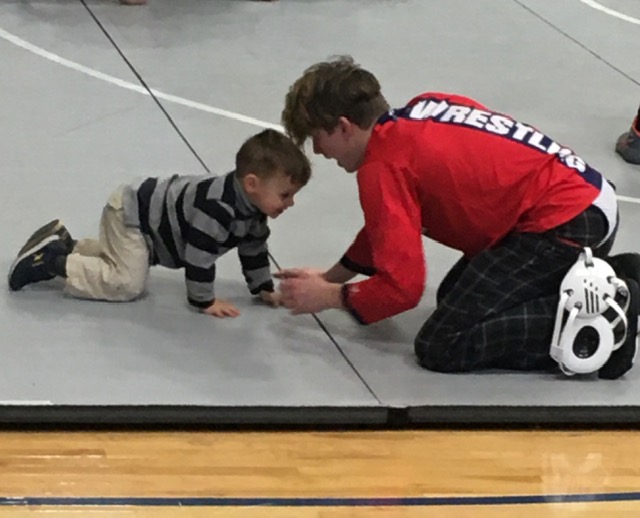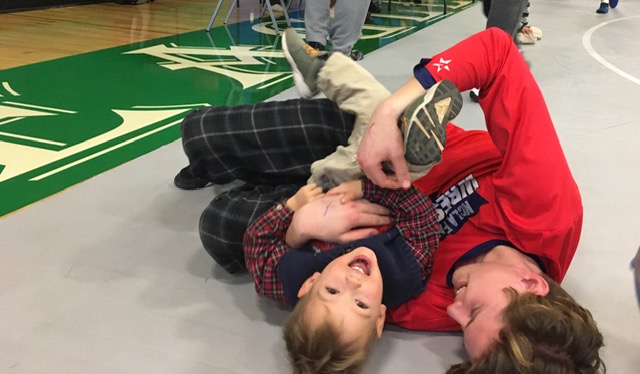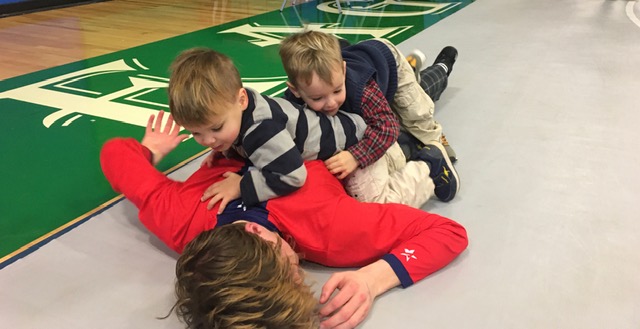This will seem like a story about losing, but believe me, it’s the opposite.
A few weeks ago, before everyone’s world got tossed upside-down, two of my sons were wrestling for spots in our state’s high school tournament. One was a long-shot, the other a number-one seed in his weight class. Hopes—and the smell of gym clothes worn by boys trying to make weight—were high in the Woodlief house.

Well, nothing went as planned. The long-shot wrestled his way into contention, while our higher-rated wrestler, suffering from undiagnosed strep throat, got in trouble early. It all came down, for both of them, to one match. One more win apiece to reach the state tournament.
To compound the tension, their clinching matches were scheduled moments apart, on adjacent mats. Please, I prayed, give them this.
It was a shallow prayer, I know. Every boy in that gym worked hard to get there. Every one of them had a mother or father or someone praying. And wrestling is not, as we’re all being reminded these days, that important.

But I prayed, like every other parent in there, and like most of them, I watched my sons lose. Both of them, seconds apart.
It’s hard, in a moment like that, to make sure your child understands that you’re disappointed for him, not in him. And it’s hard, as a son, to stand in the gaze of your father so soon after losing. Understandably, the boys chose to ride home together, in the older one’s car.
Those of you with children in sports know there’s always a dozen things your kids leave behind, so we were several minutes behind them. Long enough for anything to happen on that long country highway home.
Some twenty minutes up the highway, we saw flashing lights. A lot of them. Firetrucks, an ambulance, state troopers. A tangle of metal strewn along the ditch.
I found myself praying again. Please, God. Not them. Not my children.
Which I suppose was more selfish than my first prayer. It had to be, after all, somebody’s children. That’s the terror of this world. It’s always somebody’s child.
I’m ashamed and thankful to tell you it wasn’t my children. And though I’ll always hurt for them when I think on that day, I can’t help but think of it as a gift. The day I didn’t lose my sons.
It’s a good season of life, for all of us, to be mindful of our gifts. We’re wired to take it all for granted. To let our everyday miracles become part of the background. Keep them in your sight.


